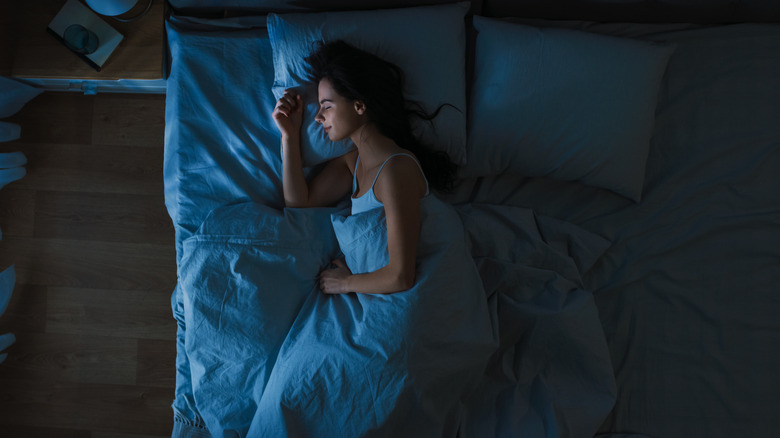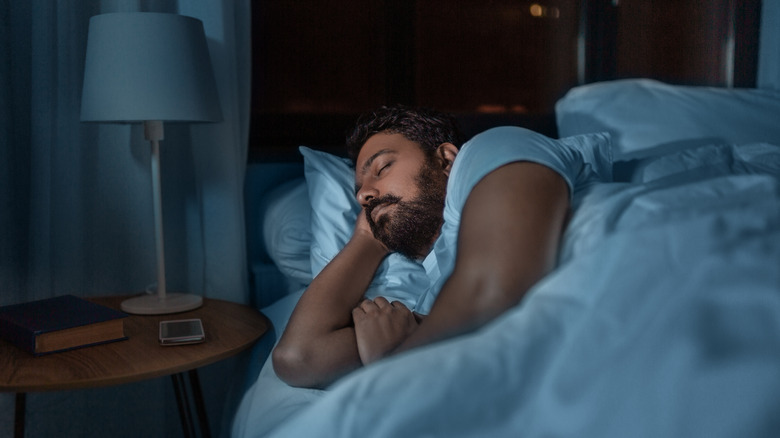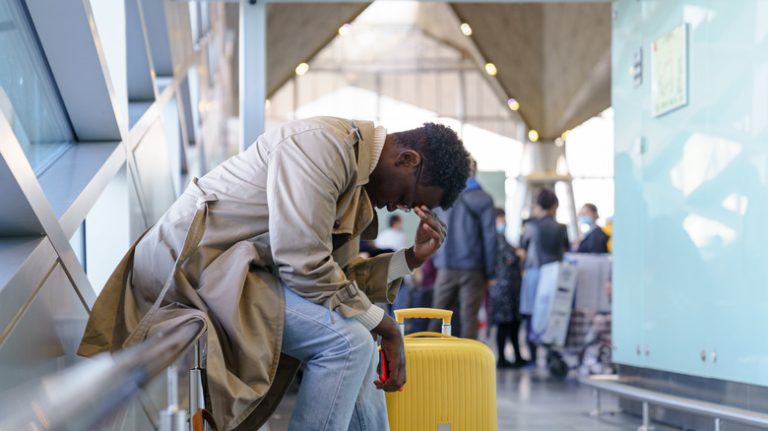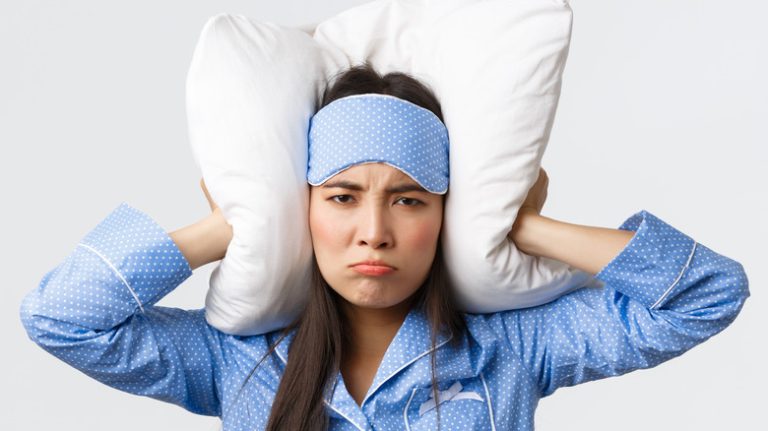Nothing beats the feeling of dropping into bed at night and falling asleep without a second thought. But for many, this isn’t the reality of their nightly routine. In fact, many people have needed to adopt some bedtime habits in order to be able to fall asleep faster.
Sleep latency refers to how long it takes you to fall asleep once you get into bed, according to Sleep Foundation. It doesn’t include the usual things you do before going to bed, such as brushing your teeth, changing into pajamas, or turning out the lights. Generally, a healthy sleep latency time frame is about 10-20 minutes. If it takes you less than 15 minutes to fall asleep, you probably have good sleep health, says the National Sleep Foundation. If you fall asleep in 16-30 minutes, it’s still considered within the normal range. But if it takes you 45 minutes or longer to fall asleep once your head hits the pillow, it may be a sign of unhealthy sleep. This could mean that you’re having trouble shutting off your brain, are stuck in problem-solving mode, or are experiencing physical symptoms of stress, such as rapid heartbeat and muscle tension.
But there are things you can do to improve your sleep latency, and Health Digest polled readers to see which bedtime habits helped them fall asleep the fastest.
The number one way people fall asleep faster probably won’t surprise you

In a survey of 610 respondents, Health Digest found that the number one way people help themselves fall asleep faster is simply by putting away their phone. Results showed that 34.92% of respondents, or 213 people, fell asleep faster by not using their phone as much before bed. And it makes sense — research shows that scrolling on your phone before bed can stimulate your brain, delay rapid eye movement (REM) sleep, and suppress your levels of melatonin, a hormone that controls your sleep cycles (via Cleveland Clinic). Coming in second place was reading, which 154 people, or 25.25% of respondents, do before bed.
Creating a peaceful atmosphere before heading to bed was also a common response. Listening to music helps 16.72% of respondents, or 102 people. 77 people, or 12.62% of participants, said they meditate before bed, and another 9.84%, or 60 people, drink tea to fall asleep faster. In last place was journaling, which just 4 respondents said they do before bed.
Any method of reducing stress and increasing relaxation can help you quiet your brain and get to sleep faster (via Sleep Foundation). In addition to the habits Health Digest readers have adopted, you can also try creating a consistent sleep schedule, keeping naps short, being mindful of what you eat before bed, limiting your caffeine and alcohol consumption, and sleeping in a dark, quiet room.




